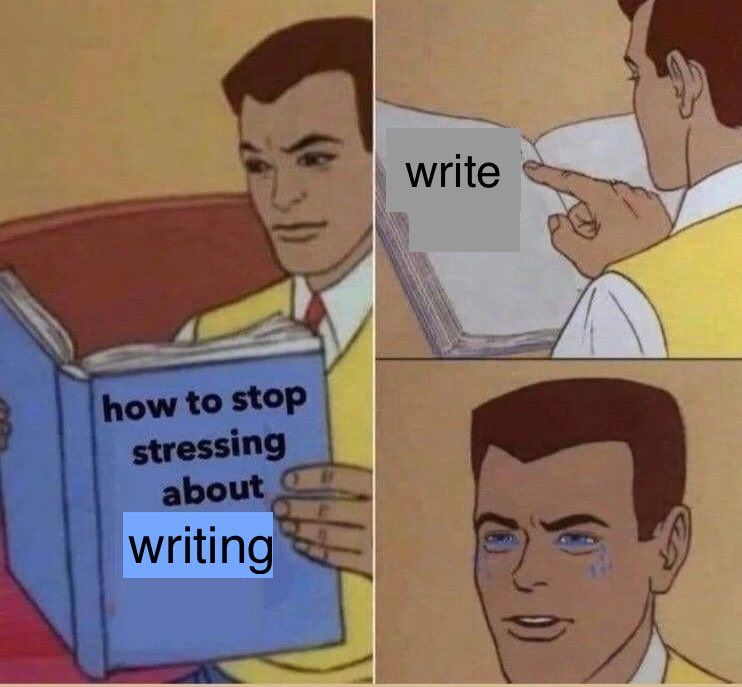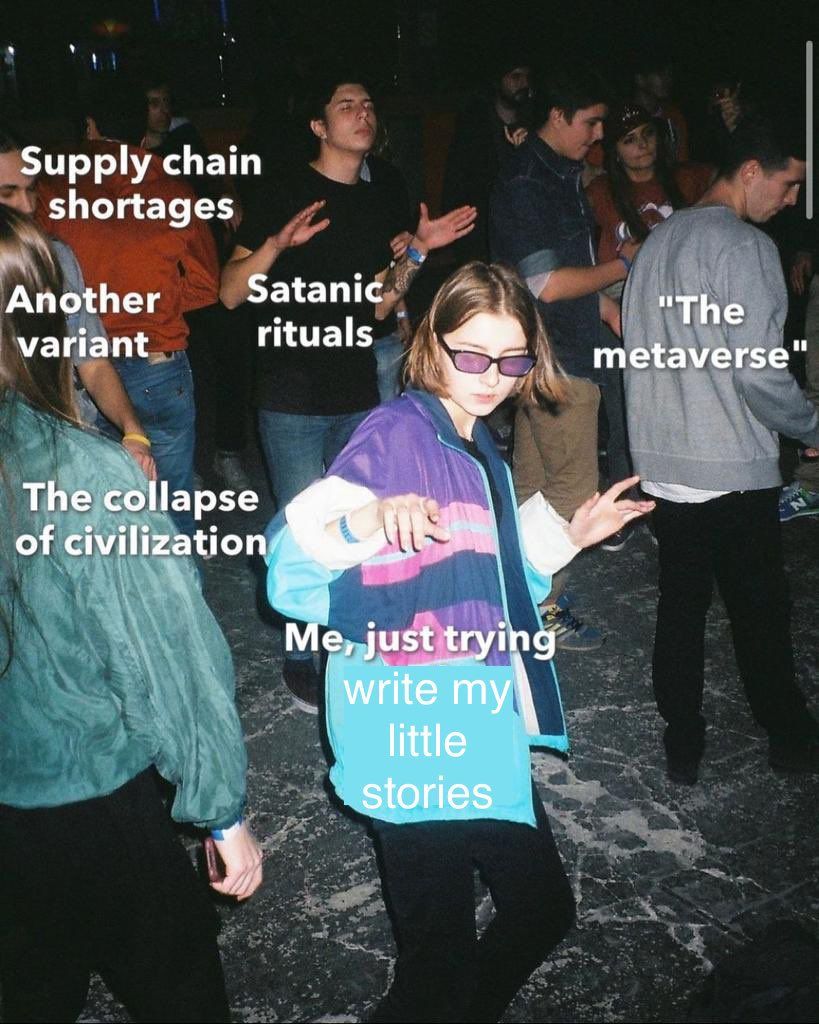Issue 40: The fear of finishing
Hello to all the new subscribers! Huge thank you to Ann Friedman for recommending this newsletter for “Best Creativity” in her own fantastic newsletter. You can expect this newsletter every other week and you can peruse past issues here.
It feels good to be writing again. But I’ve also been encountering a new problem: I’m procrastinating from returning to—and finishing—my novel draft.
I started writing it last year because I needed both the focus and the distraction. This year, I wrote a real outline, participated in some 1-2 week writing challenges, and for a few solid months was writing every day. Things stalled when I moved in July. Every day that’s passed since is one more day that my Scrivener file collects electronic dust. What’s odd is that I know how the book ends (hence the outline) and I’m on the home stretch with 82,000 words written. Part of me knows I’m capable of finishing this draft, but a bigger part of me is completely paralyzed.
I’ve always struggled with starting new pieces, or gotten caught in the slog of the middle, but I’ve never shied away from finishing things once I have the momentum. Something else, I realized, was stopping me.
When I was putting together the newsletter links for the last issue, I reread Alexander Chee’s advice on overcoming writers’ block. He identified fear as its primary source—of your own ideas, of humiliating yourself, of how others will see you, of failing to achieve. Yes yes yes, my brain chanted as I took in Chee’s words. I’m afraid. As Cheryl Strayed says, “Because we're afraid of failing, sometimes we turn away from it and don't do it at all.”
When I complete this first draft, I have to take a step back and assess it. Maybe show it to some trusted readers. I have to acknowledge the amount of time and effort that went into it and whether it's worth continuing. If it is, revision is the next big step. If not, what was it all for?
As long as it’s incomplete, I get to linger in a limbo state. I don’t have to think as much about the quality. And in my shitty lizard brain, I equate the quality of the work with my quality as a person.
I’ve been trying to yank myself out of the clutches of this capitalist frame of thinking, of time wasted and sunken costs. There is pressure that your time must be worth something. But that worth is narrowly defined: getting published, finding an agent, a book deal, money, fame, etc. Something Min Jin Lee said in an interview has helped me refocus on the things I can control. “Most people can’t start things or most people can’t finish things, but if you can start something and finish something, you’re going to be fine. As for status, riches, fame, and splendor? Those are out of reach for everybody.”
It’s also been helpful to hear from writers who have written—and retired—whole novels. Jia Tolentino finished a novel during and after grad school. “I worked on it for four years and shelved it,” she says. “[I] have never regretted either spending so much time on it or relegating it to non-existence, because the process of writing it taught me so much.” Similarly, Kate McKean wrote a YA novel (link is paywalled) that “will never see the light of day.” But she doesn’t feel like those years were wasted because it taught her how to write a novel. “Each novel teaches you something,” she says. “And you improve with every one.”
So what do I want to get out of this experience? What is within my reach? Like Tolentino, I want “the experience of putting a lot of sustained, intense effort into something and seeing what [comes] out.” I want to stretch myself and prove that I’m capable of working on a book-length project. Strayed puts it more bluntly, “Your ambition is not to write the Great American Novel. Your ambition is to finish the damn book. [...] We are in charge of the work we do and whether or not we give it our all.”
All of my fears are still there, but I now know that my fear of not finishing is even greater than my fear of finishing. All I can do is show up and continue.
So yesterday, I leaned into fear.
I finally opened my novel draft and read the three most recent chapters. I cringed at some parts. I edited a few sentences. I started writing again.


Creative resources
- There are so many excellent nuggets of wisdom in this interview with Min Jin Lee on endurance, research, language, and finding purpose and pleasure in writing.
- Writing advice from Cheryl Strayed that I come back to often, via Brass Ring Daily: “The measuring stick is not, Do other people love it? Did it win the National Book Award? But rather, Did I do the work? And, Did I do it as well as I could? Answering yes to those two things is my guiding light.”
- “It’s Okay If You Didn’t Read This Year” by Jess Zimmerman
- Garth Greenwell is offering a fiction master class for LGBTQ writers next March and April. The class is free and admission is by application only. Applications open February 7, 2022.
- Kyle Lucia Wu on writing an ordinary existence: “That’s what I wanted to capture—a particular loneliness, the loneliness of illegibility, that crackles only for you.”
Recent reads & other media
After reading Act Your Age, Eve Brown a few months ago, I’ve been on a Talia Hibbert streak with the first two books in her series, Get a Life, Chloe Brown and Take a Hint, Dani Brown. Hibbert writes such fun, sexy romances that balance serious topics with sensitivity and humor. Her characters always have unique personalities and great banter.
My sister and I watched The French Dispatch, Wes Anderson’s latest film and a tribute to The New Yorker. In line with its reminiscence of magazines, the movie is divided into four “articles”—and some stories are stronger than others. In the first part (my favorite), Benicio del Toro plays an imprisoned artist who draws the attention of fellow inmate Adrien Brody, an art exhibitor. The result is a mix of witty commentary on arts, culture, and commerce. Over Thanksgiving, I saw My Cousin Vinny for the first time (a classic) and An American Pickle (Seth Rogen playing two roles, based on this very funny short story).
~ meme myself and i ~
Walter the Cat likes his new tie. POV: You just asked Roman Roy why he’s always sitting like that. Words don’t come easy for writers. Capybaras in love. Fighting the urge to say my favorite winter conversation starter. When you’re just trying to do your hobbies in peace.

